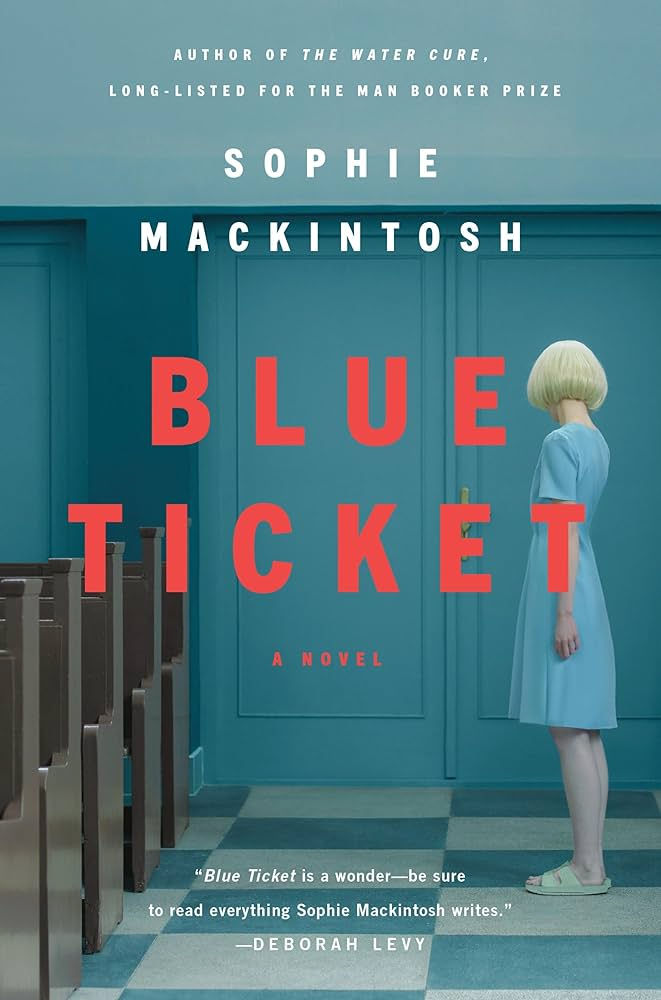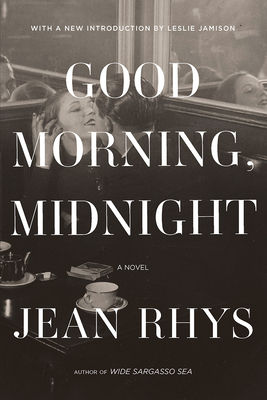Blue Ticket by Sophie Mackintosh
Reviewed by Jenna Tomlinson

Feminist literature is becoming more and more prominent, particularly literature that handles the difficulties and challenges women endure at the hands of a patriarchal society. For Blue Ticket, that challenge is motherhood and the difficulties surrounding the autonomy of becoming a mother. Sound familiar?
Unlike some recent political climates, however, the women in Mackintosh’s novel have no autonomy in this situation. In what appears to be a not-too-distant future, the path of a girl’s life is decided in a clinical treatment centre, on the date of her first period. A white ticket means motherhood: family life, children and all this brings. A blue ticket means freedom: no ties to a tiny baby or family life, and the decision is made for you.
But the women in Mackintosh’s novel are not just forced to lose their bodily autonomy. Following the decision, they are forced to embark on a harrowing and lonely journey to prove they can survive outside of their families. It is a perfect analogy for the difficulties women face navigating a patriarchal world.
But what if the decision that is made is the wrong decision for you? What if, upon entering your new lifestyle, you decide that you may have wanted the chance to become the opposite? And what might happen to the women who disobey the seemingly random decision made all those years ago? This is exactly the question faced by Calla, a blue-ticket woman who decides that maybe her ticket was the wrong one for her and embarks on a perilous journey because of her decision.
Along Calla’s (at times harrowing) journey, she meets a menagerie of characters; some women like her who have decided their fate is not to be decided for them, others fiercely supportive cogs of a machine designed to keep women bound to the roles chosen for them. It was emotionally exhausting not knowing who Calla could trust and being constantly on edge for her, and this is where Mackintosh’s writing shines. I felt Calla’s exhaustion and frustration as she desperately tried to figure out her next move.
This book was a challenging read. Like most books dealing with a dystopian future, where women have little to no decision-making authority or body autonomy, it didn’t feel as far away a reality as it probably should feel. The short, chunked chapters made it feel fast-paced, but Calla’s experiences were claustrophobic, and like her, I was never sure who to trust. I also loved that Mackintosh included the points of view of both sides of the coin. We heard from blue-ticket women who wanted the chance to become mothers – those who craved the family life – who looked longingly when mothers with babies walked by. But we also heard from white-ticket women who felt forced to be mothers when they really weren’t ready or had any desire to be, those terrified of what childbirth would do to their bodies and health, women who had suffered terrible losses whilst trying to become mothers and had become exhausted with their role. It is a brilliant analogy for the nuances of motherhood: the highs and lows both portrayed with sensitivity and knowledge.
This was a typical Sophie Mackintosh book – I really enjoyed both The Water Cure and Cursed Bread, so this did not disappoint. Definitely worth a read if you enjoy books such as The Handmaid’s Tale, Children of Men and Brave New World.
Good Morning, Midnight by Jean Rhys
Reviewed by Marisha Puk

Originally inspired by Emily Dickinson’s poem ‘Good Morning – Midnight,’ this modernist novel by Jean Rhys follows a young woman, Sasha, who is living in Paris. The non-linear narrative gives us flashes of her past and shows the reader what has turned her into the woman she is. Sasha is unstable, financially and emotionally, and after she revisits her past experiences, we can see the treatment the world has given her. This novel explores difficult topics, including alcoholism, suicide and grief.
This book has an interesting history; when it was first published in 1939, it received a very small amount of attention. However, after a BBC radio play was created based on it in 1957, it gained more traction. Today, the book is highly acclaimed, and Penguin Publishers has released it under their Modern Classics line.
I found the storyline hooked me. I was holding onto hope for Sasha, as I’m sure most readers would, but the society of the time was unaccepting of outsiders. This is reflective of the author, Jean Rhys, who also had a difficult time. The novel reflects what life was like for girls and women of the time who were not from wealthy families, and it presents the tragedies those women endured.
I would recommend this book to anyone who’s looking for a glimpse into the not-so-glamorous side of 1930s Paris, especially from a struggling woman’s perspective. This heart-wrenching novel will stay with you once you finish reading and may inspire you to read some other pieces of Rhys’s work.

Comments